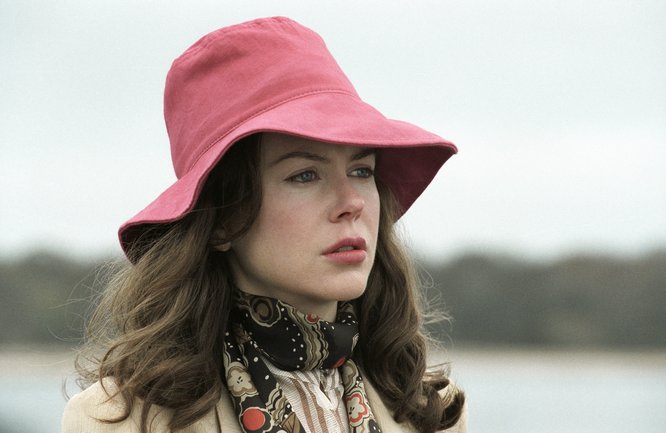
Writer/director Noah Baumbach follows 2005’s tale of warring parents The Squid and the Whale with another dysfunctional family dramedy, this one focusing on more nebulous conflicts with more players but more vague stakes.
Lacking the central metaphor and the kids’-point-of-view (as well as early ‘80s setting) of his last film, Baumbach’s Margot at the Wedding has a less clear throughline and fewer laughs that aren’t of the uncomfortable variety, putting a viewer on much shakier ground here.
Every character here is crazy, and by “crazy” I mean has some kind of behavioral issues or emotional problem they’re keeping secret, like, you know, pretty much every real person you know, but none of them fess up to or communicate these problems, nor does Baumbach telegraph them. Rather, they’re simply revealed in the announcements of life decisions or unpopular opinions, in sudden bursts of crying or screaming. It’s up to the audience to diagnose them, or at least put up with them.
This certainly makes for an immersive film-going experience—you’ll likely be just as irritated with and angry at the thoroughly unlikeable characters as they are with one another—but it doesn’t exactly make for a very fun one.
The Margot of the title is Nicole Kidman, who plays a successful writer who has turned past family strife into fodder for her fiction. She’s also the craziest of the lot; near the climax, she’s accused of having borderline personality disorder, though not in a terribly sincere manner. At the very least, she has rather…idiosyncratic parenting skills, and the habit of passive-aggressively and often aggressive-aggressively attacking everyone within earshot, a habit that seems to bring out the worst in the rest of the players.
Margot and her teenage son Claude (Zane Pais) are visiting Margot’s sister Pauline (Jennifer Jason Leigh), whose about to get married to her unemployed musician/painter/letter writer boyfriend Malcolm (Jack Black), whose first words to Margot involve his ironic moustache.
Pauline and Malcolm are going to get married at the Long Island house the two sisters grew up in, and which the couple now lives in, and much of the film is set there, in the build-up to the wedding. Rather than the usual pre-wedding challenges encountered in films, we see the characters blow up over tense meals, lost dogs, unfriendly neighbors, croquet games and the like.
The film unfolds in scene after scene of sniping, shifting alliances and secrets shared and almost immediately betrayed. There are flashes of humor, and the performances are all remarkably solid (even the one given by Black, whose not a terribly subtle actor), but Baumbach’s realism here might be a little too real. It’s a remarkably told story, dribbling out between the sharply written verbal barbs and only completely emerging once the credits close. Provided you don’t already get enough dysfunction from your own family, of course.

